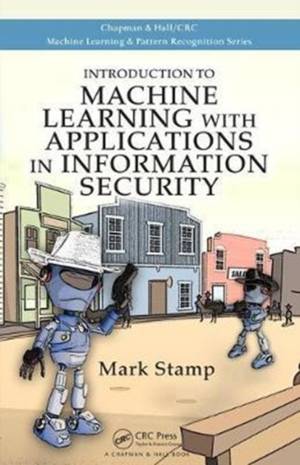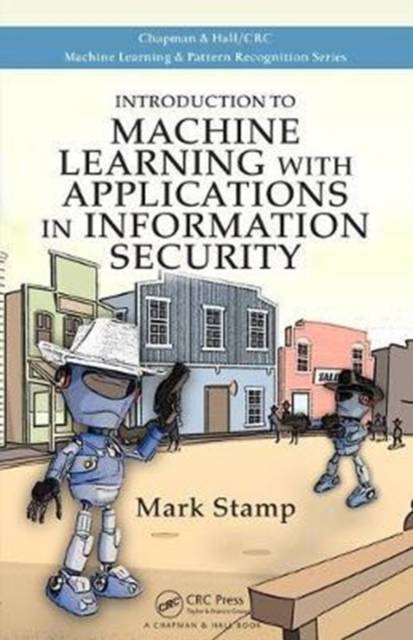
- Retrait gratuit dans votre magasin Club
- 7.000.000 titres dans notre catalogue
- Payer en toute sécurité
- Toujours un magasin près de chez vous
- Retrait gratuit dans votre magasin Club
- 7.000.0000 titres dans notre catalogue
- Payer en toute sécurité
- Toujours un magasin près de chez vous
Introduction to Machine Learning with Applications in Information Security
Mark StampDescription
Introduction to Machine Learning with Applications in Information Security provides a class-tested introduction to a wide variety of machine learning algorithms, reinforced through realistic applications. The book is accessible and doesn't prove theorems, or otherwise dwell on mathematical theory. The goal is to present topics at an intuitive level, with just enough detail to clarify the underlying concepts.
The book covers core machine learning topics in-depth, including Hidden Markov Models, Principal Component Analysis, Support Vector Machines, and Clustering. It also includes coverage of Nearest Neighbors, Neural Networks, Boosting and AdaBoost, Random Forests, Linear Discriminant Analysis, Vector Quantization, Naive Bayes, Regression Analysis, Conditional Random Fields, and Data Analysis.
Most of the examples in the book are drawn from the field of information security, with many of the machine learning applications specifically focused on malware. The applications presented are designed to demystify machine learning techniques by providing straightforward scenarios. Many of the exercises in this book require some programming, and basic computing concepts are assumed in a few of the application sections. However, anyone with a modest amount of programming experience should have no trouble with this aspect of the book.
Instructor resources, including PowerPoint slides, lecture videos, and other relevant material are provided on an accompanying website: http: //www.cs.sjsu.edu/ stamp/ML/. For the reader's benefit, the figures in the book are also available in electronic form, and in color.
About the Author
Mark Stamp has been a Professor of Computer Science at San Jose State University since 2002. Prior to that, he worked at the National Security Agency (NSA) for seven years, and a Silicon Valley startup company for two years. He received his Ph.D. from Texas Tech University in 1992. His love affair with machine learning began in the early 1990s, when he was working at the NSA, and continues today at SJSU, where he has supervised vast numbers of master's student projects, most of which involve a combination of information security and machine learning.
Spécifications
Parties prenantes
- Auteur(s) :
- Editeur:
Contenu
- Nombre de pages :
- 346
- Langue:
- Anglais
- Collection :
Caractéristiques
- EAN:
- 9781138626782
- Date de parution :
- 07-09-17
- Format:
- Livre relié
- Format numérique:
- Genaaid
- Dimensions :
- 155 mm x 236 mm
- Poids :
- 1088 g

Les avis
Nous publions uniquement les avis qui respectent les conditions requises. Consultez nos conditions pour les avis.






